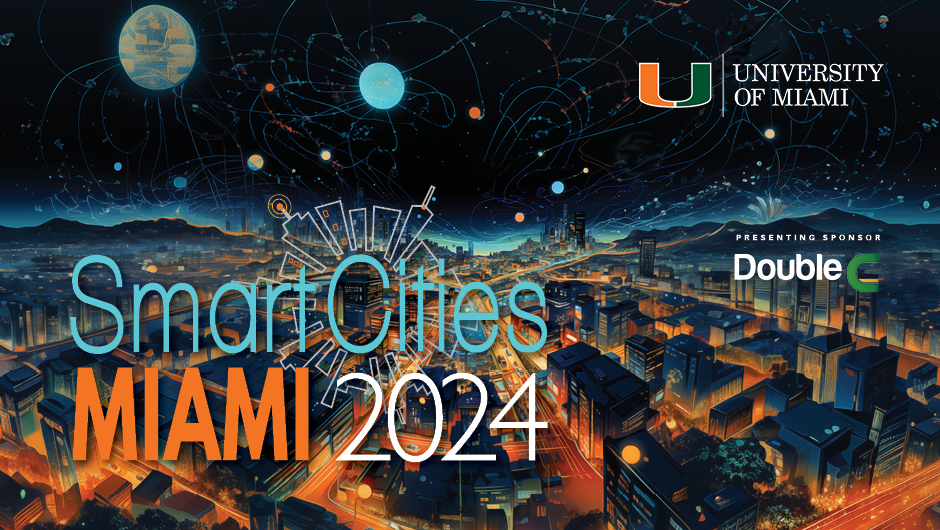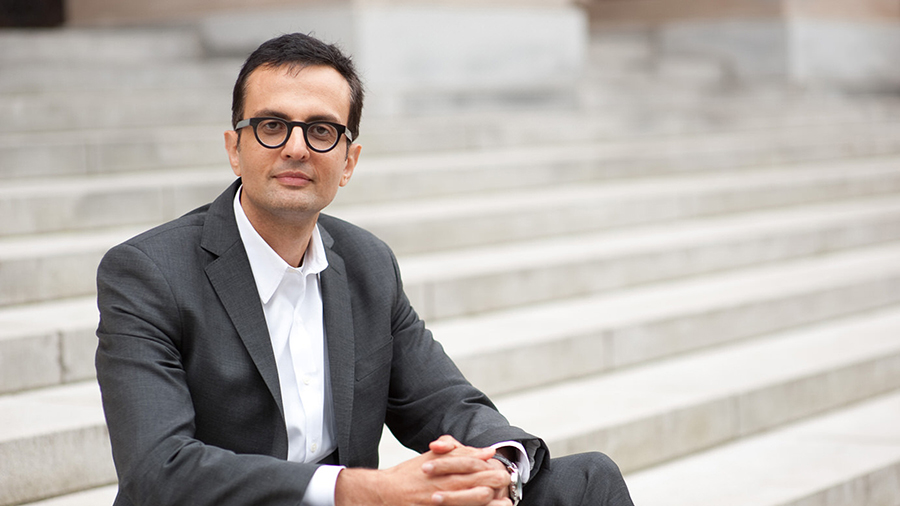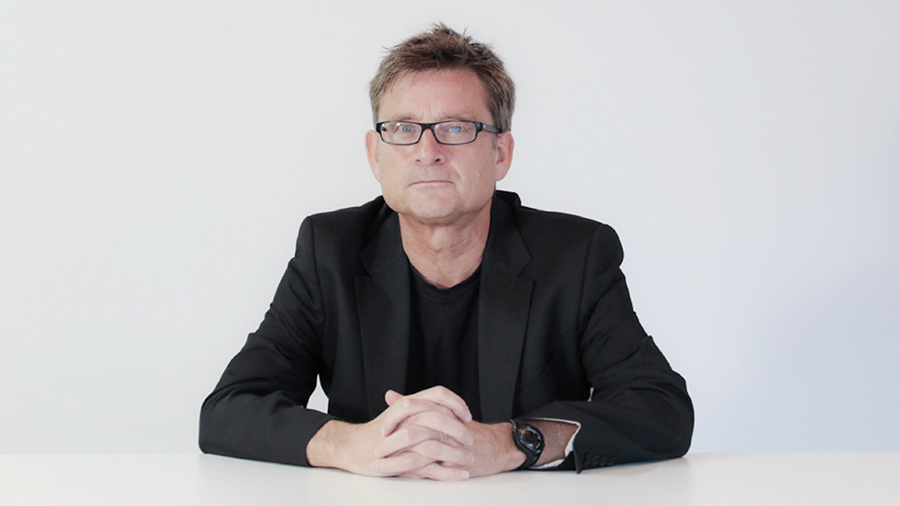
Smart Cities MIAMI 2024
Technology experts, government leaders, planners, industry visionaries, and the public came together on Thursday and Friday, April 11 and 12, 2024, for the 8th Annual Smart Cities Miami Conference, hosted by the University of Miami School of Architecture and Frost Institute for Data Science and Computing, and presenting sponsors Double C by Conconcreto and Broadway Malyan, to explore the impact of AI in smart city practices and how individuals, societies, and cultures adopt and adapt to emerging AI-driven technology in smart cities.
Catch the Replay on YouTube
- Day 1 Introduction (5:34)
- Day 1 Panel 1 | Smarter Cities? (47:43)
- Day 1 Panel 2 | Rethinking Infrastructure (44:13)
- Day 1 Panel 3 | Transforming the Profession (49:35)
- Day 2 City of the Future (1:40:53)
DAY ONE
The Lakeside Village Expo Center was filled with a buzzing energy, the glass walls lined with exhibitors including the School of Architecture’s RAD LAB, showcasing the latest technology demos and startup innovations. Rodolphe el-Khoury, dean of the School of Architecture who has chaired this conference since its initial launch in 2017, opened the 2024 edition by introducing the first topic, “Artificial Intelligence and its Role in the Design and Management of Smart Cities.”

The opening keynote, Ali Malwaki (director of the Doctor of Design Studies Program and Professor of Architectural Technology at Harvard Graduate School of Design), kicked off the event.
Three subsequent panels delved into the concept of smarter cities, rethinking infrastructure and transforming the profession. These topics considered the role of artificial intelligence in the design and management of smart cities, providing opportunity to explore the impact of AI in smart city practices and how individuals, societies, and cultures adopt and adapt to emerging AI-driven technology in smart cities. “We are invested in this public forum because we believe that we are at a threshold of significant transformations in the urban environment provoked by new services and practices driven by emerging technology,” said el-Khoury.

The closing keynote speaker, Neil Leach, director of the doctor of design program at Florida International University, talked extensively about the complex nature of AI and the unforeseeable dangers of the advancement of this technology.
DAY TWO
The second day featured a University partnership with Miami Think Tank, a new platform for discussions on current challenges in contemporary cities and global urbanization processes which focuses on the city of the future and unleashing the power of AI in urban development.
Alejandra Pardo de Francisco, innovation director at Double C by Conconcreto, touched on the importance of this collaboration. “As a Latin American and U.S.-based company, Double C, we decided to bring it to Miami. The University of Miami is the best place and partner to host this event as we have worked together for years and believe in changing our industry and building a more sustainable future,” said Pardo.
The panel “City of the Future: Unleashing the Power of AI in Urban Development,” was moderated by Coral Gables Mayor, The Honorable Vince C. Lago. He was joined by panelists Jorge Ponce Dawson, practice principal and design director and head of studio in Madrid for Broadway Malyan; Olivia Ramos, CEO of Deepblocks; and Terry Shaw, senior practice builder and associate at Kimley Horn.
Following the end of the Smart Cities Conference, guests were ushered across campus to partake in the University of Miami-COBOD International Collaboration Launch Event at the Studio Arts Building. In a significant stride toward innovative construction technology, COBOD, a global manufacturer of concrete 3D printers, has embarked on a strategic collaboration with the University in a move set to redefine the landscape of construction research and application.
This partnership includes the installation of the BOD 2, a state-of-the-art large format concrete 3D printer, on the Coral Gables Campus. The collaboration will focus on a broad spectrum of initiatives, from pioneering new research in the domain of automated construction systems to enhancing existing studies in concrete 3D-printing technologies, as well as applying these research endeavors into tangible, real-world applications, notably in addressing the critical challenge of affordable housing in Miami.
“3D printing will transform construction through the design freedom that it unlocks,” said Philip Lund-Nielson, co-founder and head of Americas for COBOD International. He said a COBOD concrete printer “can move completely unhindered in three dimensions, allowing for much more unique and creative structures, making spaces more exciting and enjoyable to live in.”
The partnership between COBOD International and the University represents a groundbreaking advancement in the realm of concrete 3D printing. The collaboration paves the way for innovative research and practical applications that could revolutionize the construction industry.
See the full Photo Gallery here.
